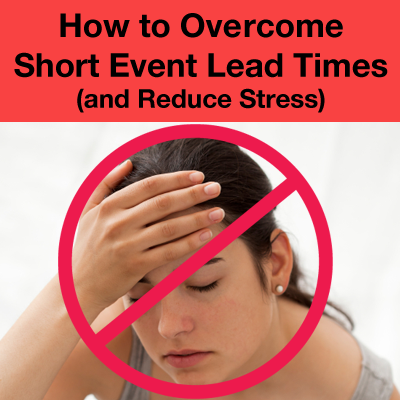#1 - Get budget sign-off early
The minute a client calls, your first objective is to get them to commit to a overall budget and sign off on it. That way you know what you have to work with and can break down the budget into line items that they can then sign off on in short order.#2 - Push clients to make big decisions upfront
With a short deadline, there's really little to no time to mull over big things like geographical location, theme, keynote speaker, entertainment, meal options, etc. So sit down with your client and have them commit to these big ticket items early so you can start the research and RFP process immediately.#3 - Streamline your proposal process
Now is also not the time to send out 50-page proposals to your venues and vendors that could take them weeks to reply to. You need their proposals in your hands in a matter of days, not weeks, so shorten your RFPs so that vendors can read them in one quick sitting and be very specific about your requirements so they can formulate a reply fast. Oh, and since you will have very little time to negotiate, ask for their best price out of the gate.#4 - Clearly define roles and responsibilities in your internal kickoff meeting
Your team needs to function like a Swiss watch for short-turn events, so from the first meeting each team member needs to clearly know what areas of the event they are responsible for, what their goals/objectives are and who they report to. Confusion and fuzzy processes are your enemy, so eliminate them whenever and wherever possible.Another best practice for overcoming short event lead times is having the right tools to help you streamline your processes. Planning Pod venue and event management software lets you build templates for task lists, contracts, proposals, itineraries/schedules and much more so you can be pre-prepared for all your short-turn events. Try Planning Pod free for 14 days and see why thousands of event professionals manage their events and venues with us.








